—-
To stay in the loop with the latest features, news and interviews from the creative community around licensing, sign up to our weekly newsletter here
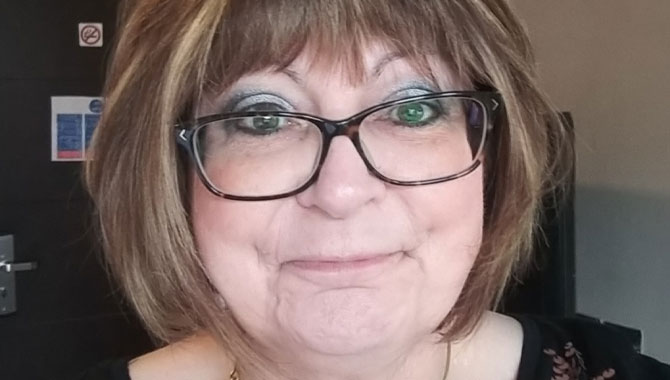
We caught up with Cathy Snow, Licensing Manager at the RHS, to find out more about the firm’s approach to brand extensions.
The Royal Horticultural Society is the world’s leading gardening charity, with a mission to enrich everyone’s life through plants and make the UK a greener and more beautiful place.
This aspiration underpins RHS shows, its scientific research and also the organisation’s award-winning licensing programme.
Within its RHS Lindley Collections are more than 25,000 pieces of botanical art that’s used to create products spanning everything from pottery to greetings cards. We caught up with Cathy Snow, Licensing Manager at the RHS, to find out more about the firm’s approach to brand extensions.
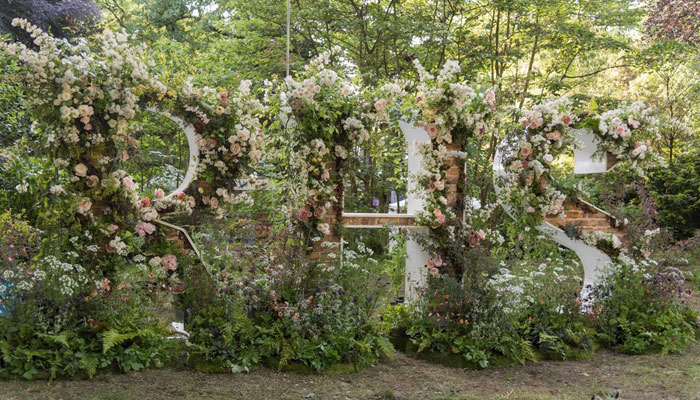
Hi Cathy! Good to chat. To start with, how did you get into the brand space?
I started in a banking environment. I did a secondment with the marketing team and realised that instead of looking after databases, I wanted to be more creative. So, I did my marketing qualifications and eventually worked at the RSPCA. I was in the fundraising team, looking after the brand licensing agent and fundraising goods. After working with different agents for a number of years, we decided to bring licensing in-house and that was how I came into licensing.
At that point, was licensing commonplace for charities?
No, there wasn’t many using licensing as a fundraising tool. While I was at the RSPCA, we often got approached by other charities that wanted to find out more about how we were doing it. I was there for around 10 years, and then the role at RHS came up.
It’s been a real challenge but a great opportunity because they’ve given me the freedom to develop the brand. When I joined, the licensing programme was established but wasn’t growing. No-one knew about it and the way the RHS used the imagery they had was quite limiting. We’ve used the artwork in different ways since then and the income has grown greatly; now generating over a £1 million profit for the RHS each year.
For anyone new to RHS, what makes up the core the brand DNA? What can licensees play with?
We have our gardening expertise; our flower shows, our five fabulous gardens and thousands of really beautiful botanical images within the RHS Lindley Library. Some of those date back to the 1600s and are beautifully hand-drawn. Every year that goes by, more images can be released and used on product as they come out of copyright.
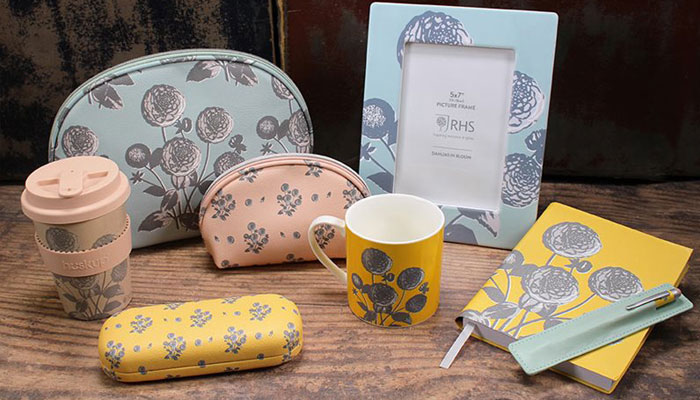
What makes the RHS brand a creative one for your partners to work on?
There’s an appeal across a broad range of ages, and that’s growing as more young people get into gardening. There is also a strong educational side to the RHS, and each garden has an education centre. That’s also reflected in some of our flower shows too; the Garden Festival at Hampton Court and the Tatton Park Flower Show are very child focused.
There’s also an appeal on the heritage side for an older audience. We’re a trusted organisation, so the appeal and connection that people feel with the RHS is really strong across the generations – from those that remember it as a slightly elitist organisation to those that see the inclusive work we’re doing now.
We’ve had to work quite hard to show our partners how the brand appeals across the generations. We’re focused on children for the last few years and at BLE in 2019 we launched our new artwork for children – it featured fun patterns, catchy phrases, things like that.
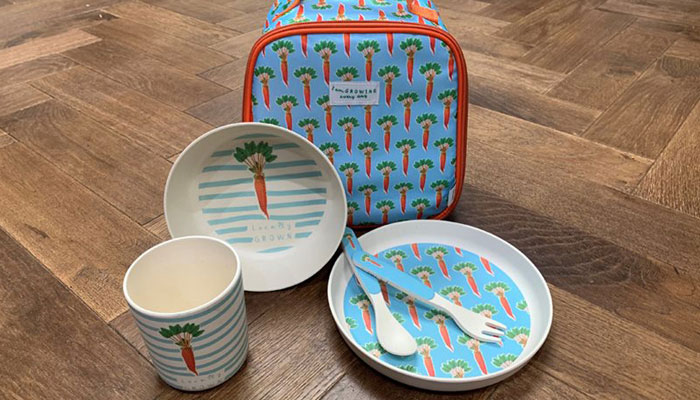
Nice. On that, what sort of children’s products have you worked on recently?
We have a range of backpacks and lunchboxes due to be released soon with Dexam, and we’ve worked with Scholastic on publications that launched this Spring, with further titles over the next 2 years. Going to BLE was the starting point for those relationships.
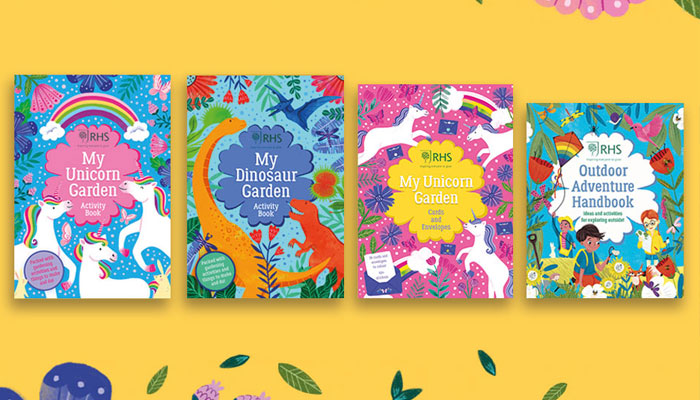
It’s on us to show people how we want the assets used. Some licensees get it instantly, and other we have to encourage. We created a collection of images based on garden plans called Geo, because the geometric patterns trend was really strong. It took some of our existing licensees quite a while to see how they could incorporate that in their products.
We weren’t saying “We want a geo pattern on something.” It was more about it being a design element within a wider floral pattern. It was hard work selling that in, but once they realised it was about combing floral patterns and geometric shapes, it worked and is working really well.
One thing that’s interesting about the RHS is that you’ve not just gone ‘route one’ with your products. There’s a whole host of categories and brand extensions beyond the expected.
Oh absolutely. UK Greetings is a key deal for us and for me personally.
These are the greetings cards?
Yes. RHS had previously only worked with a small card publisher, and we didn’t generate a huge amount of royalty from cards and stationery. I knew the people at UK Greetings quite well as I’d worked with them when I was at RSPCA. When I said to them about doing an RHS range, they were keen to be involved!
The MD, Ceri Stirland, was an RHS member and had fond memories of the Harlow Carr Garden, so they got the brand immediately. We showed the UK design team some of the images held in the Library at Vincent Square, London and from then on, it was a done deal! It’s been great for us and is currently our second largest license.
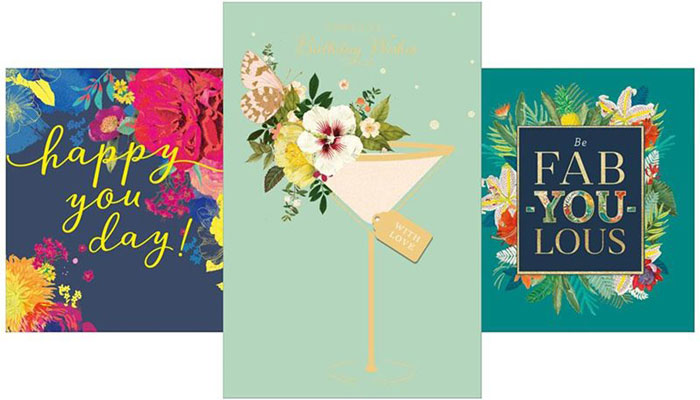
Last month, you announced the latest range of art pottery to come out of your collaboration with Moorcroft. Why did art pottery make sense for the RHS brand?
Well, for context, there are two threads to the RHS licensing programme. There’s the multi-channel, multi-distribution high volume licensees – that’s where we get most of the income. But it’s also really important for us to work with partners on UK-based, handcrafted, exclusive products that come at a higher price point.
One example of this approach is the fact that we work with Woodlodge on outdoor pots and planters, but we also work with Whichford on handmade terracotta pots. Another is that we work with Kettler on garden furniture that we sell through John Lewis and other retailers, but then we also work with Sitting Spiritually on hand-carved benches. There’s a balance to the programme that we are really proud of.
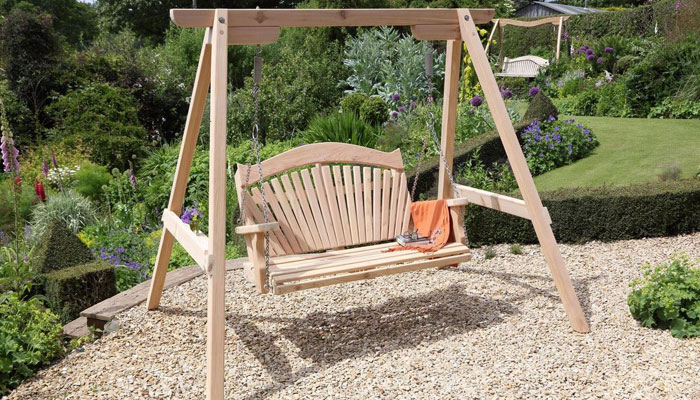
Moorcroft fits into that handcrafted side to what we do, and they’re a really lovely company to work with. There have lots of heritage too, so there’s some nice synergy there. They had a stand at our flower shows for years, but no-one had asked them if they would be interested in creating RHS collections. They came to us asking if they could do a limited edition RHS range to sell at the RHS Chelsea Flower Show, and I said, “Why don’t we do a partnership for a broader licensed range?”
Our first collection with them was centred around roses, and each year we’ve looked at what’s relevant and built a range around that. This year, they have taken inspiration from artwork from the RHS Lindley Collections and created a ‘Flori Bottan’ collection and we also wanted to celebrate the opening of RHS Garden Bridgewater, so we did a range that linked to that garden.
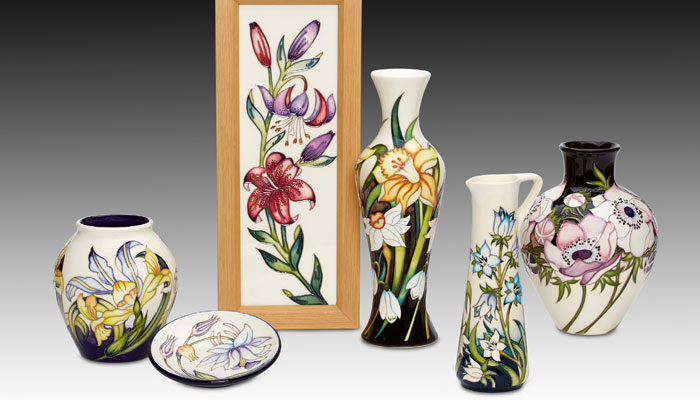
We’re talking to lots of companies about experience-based brand extensions. You guys already do lots of live events with the flower shows, but could you ever see the RHS embracing licensed hotels, bars or restaurants?
There is scope to look at that, but we’re quite a small team! There are so many opportunities untapped. My boss used to work at Merlin so he’s well aware of the potential there. Maybe one day we’ll do a Peppa Pig Garden – you never know!
We’ll get an eye on that! This has been great, thanks Cathy. My final question is this: How do you fuel your own creativity? What helps you have ideas?
Experiences help! Meeting licensees in their own places sparks ideas. I haven’t been able to get out and about as much to visit licensees or to do some retail research as I’d have liked this past year, but looking online at products, researching product categories really helps. Walking around our gardens really fuels creativity too. As does life and looking at product trends. If you have a naturally inquisitive mind, you just don’t really stop having ideas, do you? Everything’s an opportunity!
Enter your details to receive Brands Untapped updates & news.